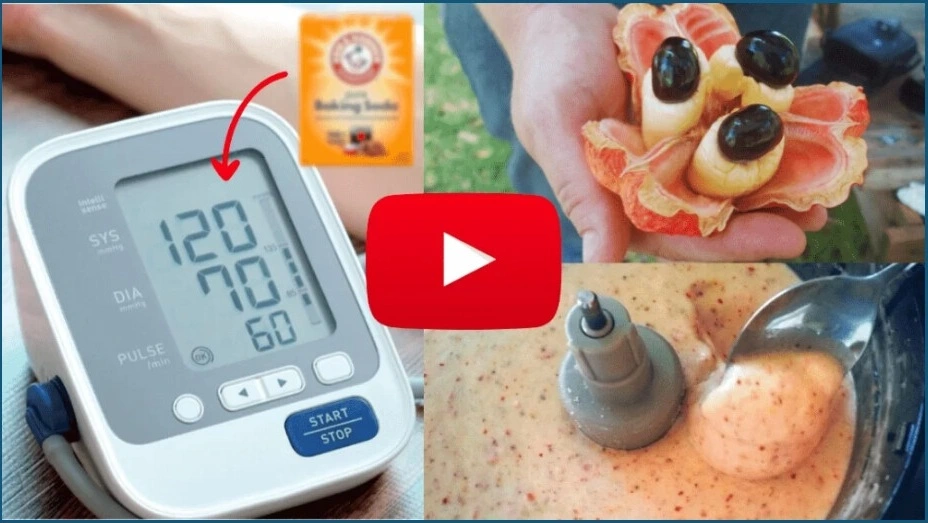Doctors warn: High blood pressure over 135/85 can silently trigger a fatal stroke — sometimes while you sleep.
Sometimes the head starts to pound…
Or the heart begins to beat harder than it should, for no clear reason.
Every day, thousands of people search for how to reduce high blood pressure, trying to understand why these signs seem to come out of nowhere.
Millions watch their blood pressure rise — even when they try to eat better, cut salt, drink more water, and stay active.
But according to recent research, the real reason blood pressure increases may have nothing to do with diet, stress, or age.
Scientists discovered a hidden signaling pathway inside the kidneys that tells the heart how hard it needs to pump.
When this signal becomes disrupted, the heart begins pumping harder than necessary — even while you’re resting — and pressure inside the arteries rises.
This can lead to:
Pressure in the head
Ringing in the ears
Constant fatigue
Shortness of breath
That tightening in the chest that rises up toward the throat, like something is squeezing from the inside
And the longer this silent pressure continues, the more the body begins to adapt to it — and that’s the real problem.
Once the body gets used to operating under high pressure, reversing it becomes harder over time.
That’s why so many people end up depending on medication adjustments, month after month, year after year…
and still feel like nothing is actually improving — just being pushed forward.
And when the body no longer responds to these medications, doctors often suggest more invasive procedures to “help manage” the situation.
But that’s exactly when things become serious:
the longer high blood pressure stays in place,
the more the arteries can become weakened —
and this raises the risk of a stroke or heart attack, especially during a sudden spike in pressure.
It’s the kind of situation everyone has heard before:
the person seemed fine… and then suddenly collapsed.
But here’s the good news:
There is a way to support this signaling at the source —
without extreme diets or intense exercise routines.
It’s a simple natural method, but rarely explained —
which is why most people never even hear about it.
A doctor identified a quick 7-second daily ritual, done at home,
that may help support the communication between the kidneys and the heart —
allowing the body to work toward naturally more balanced pressure levels over time.
No strict diets.
No heavy workouts.
No complicated medical routines.
More than 147,000 people have already watched this explanation —
and many say it finally helped them understand what was really happening inside their body.
Normally, this video is only shown to private patients of Dr. Hans, the German heart specialist who helped uncover the hidden kidney–heart signaling pathway.
But this week — in honor of his 68th birthday — he requested that this explanation be made available to the public, so more people can finally understand what’s really happening inside their bodies.
Please note that the information we provide is not intended to replace consultation with a qualified medical professional. We encourage you to inform your physician of any changes you make to your lifestyle and discuss these with him or her. For questions or concerns about any medical conditions you may have, please contact your doctor.
You should do your own research and confirm the information with other sources when searching for information regarding health issues and always review the information carefully with your professional healthcare provider before using any of the protocols presented on this website and/or in the products sold here.
Results shown may not be typical. Testimonials found on this page are results that have been forwarded to us by users who have used the method mentioned, and may not reflect the typical experience, may not apply to the average person, and are not intended to represent or guarantee that anyone will achieve the same or similar results.
The content on this site is for informational purposes only. It is not intended to replace professional medical advice, diagnosis, or treatment.


